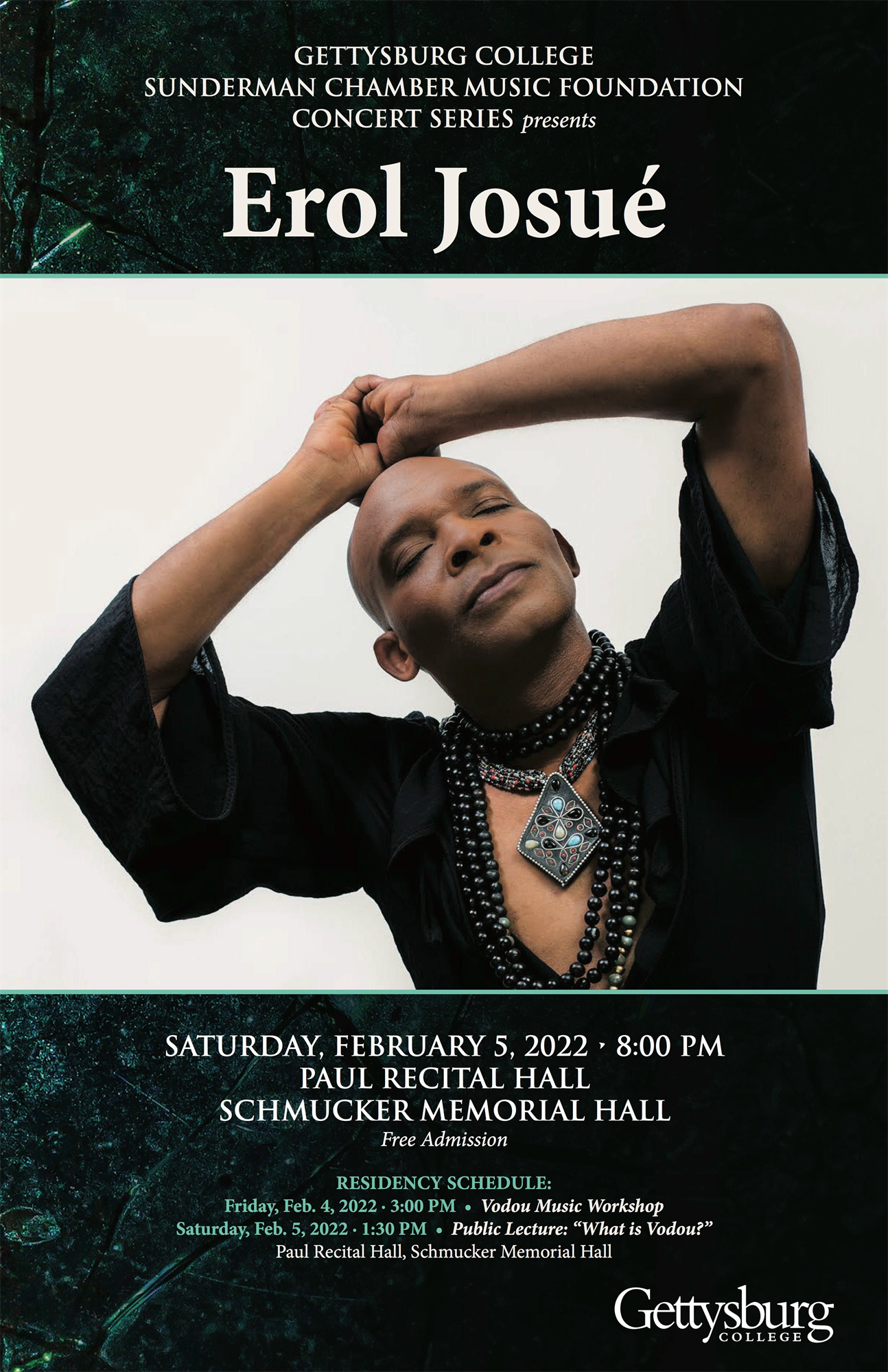Celebrated Haitian Singer and Vodou Priest Erol Josué Visits Conservatory

Haitian musician Erol Josué visited Gettysburg College (Poster courtesy of the Sunderman Conservatory of Music)
By Alicia Method, Staff Writer
This past weekend, Erol Josué, renowned singer, ethnologist, and Houngan (Vodou) priest, visited Gettysburg College’s Sunderman Conservatory for an array of residency activities.
Born in Haiti, Josué was ordained as a Vodou priest in his teens and has gone on to an extensive career in music, spirituality, and ethnology. His music draws from sacred song, Vodou ritual, and electronic music creating a mesmerizing presentation. Josué’s recent production, Pèlerinaj (Pilgrimage), took place at the Lincoln Center in New York City. Additionally, Josué is currently the General Director of Haiti’s National Bureau of Ethnology and of the best-known experts in the Vodou religion.
Josué’s residency took place over two days and three events. On Friday at 3 p.m., Mr. Josué led an interactive Vodou Music Workshop. The event began with a quick introduction of Erol by Conservatory Director James Day. Afterwards, Mr. Josué gave a brief introduction to Vodou. Throughout the weekend, Mr. Josué kept a running refrain of the idea that Vodou is more than a religion; it is, he said, “a way of life.”
Students from the ethnomusicology class then circled around the Recital Hall and presented a Haitian song they had learned. Mr. Josué enthusiastically joined and led students to the front for dancing accompanied by Josué’s colleague, drummer, and fellow Vodou practitioner.
On Saturday afternoon, Mr. Josué gave a public lecture titled, “What is Vodou?” During the lecture, Mr. Josué spoke about the history of Haiti and Vodou’s role in the revolution. Mr. Josué utilized photographs and drumming to assist in his presentation. At the conclusion, he answered questions about topics such as the inclusivity of Vodou.
Saturday night saw a rousing concert of song and dance. Erol performed numerous Haitian and Vodou songs accompanied by drums, electric guitar, piano, and two dancers. He engaged with the audience many times through call and response and asking everyone to shake their keys. Near the end of the concert, ethnomusicology professor Paul Austerlitz was invited on stage to join the band on his saxophone.
Witnessing the presence of Josué, from his passionate presentation of vodou history to the vibrant layers of his music, was a truly mesmerizing event,” Leah McCann ’24 said. “I was completely in awe of this beautiful and powerful presentation of Vodou as I had never seen it in its authentic form.”
Josué’s visit to Gettysburg offered a unique opportunity for students and faculty to engage with and learn about a ‘way of life’ and musical tradition not often represented.
